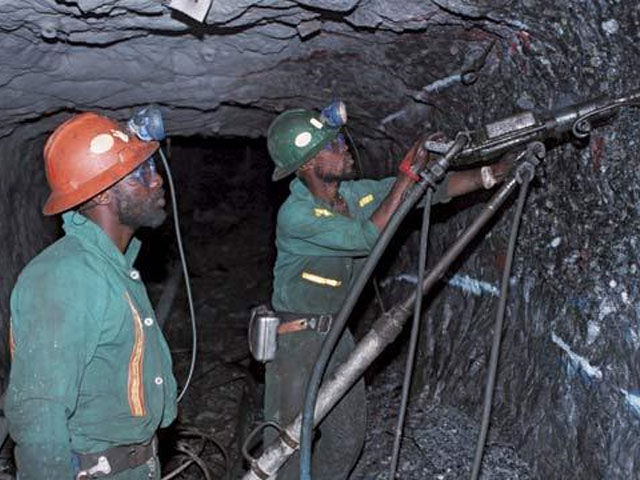With oil and gas dominating Nigeria’s extractive industries, local mining of solid minerals accounts for less than 1 percent of the country’s GDP, with earmings of just $89 million a year. According to the Nigerian Extractive Industries Transparency Initiative, (NEITI), some 40 different kinds of solid minerals and precious metals buried in Nigerian soil are yet to be exploited. Opportunities exist for the exploitation and export of natural gas, bitumen, limestone, coal, tin, columbite, gold, silver, lead-zinc, gypsum, glass sands, clays, asbestos, graphite, and iron ore. Nigeria says it has the manpower to foster growth in the mining sector, having produced more than 20,000 geologists over the last ten years. The government recently established a Ministry of Solid Mineral Development to boost the sector.
Held in Abuja, Nigeria, on Nov. 19, the 4th Sustainability in the Extractive Industries Conference was jointly organized by CSR-in-Action, Nigeria’s business and ethical networking platform and consultancy for sustainability; NEITI, the local chapter of the global Extractive Industries Transparency Initiative (EITI); and PwC Nigeria.
Below are the most pressing issues and recommendations that came out of the conference, according to a press report released by the Transparency Forum Initiative. Launched in Nigeria on Nov. 17 as a series of targeted discussions, the initiative seeks to highlight the importance of transparency in all aspects of the political and commercial economy; advocate for regulatory reforms around transparency; and encourage public-private collaboration on new approaches and actions required to embed transparency into the country’s business landscape.
Problems hampering the mining sector’s development
* Political uncertainty. Charasteristic of the current Nigerian political landscape, a change of hands comes with a complete overhaul in policies;
* Lack of incentives to encourage the private sector where they are crippled by a disabling economic environment;
* Insuficient and poor data to give confidence to reliable investment, likely attributable to the complete neglect of the mining sector over the years;
* Limited access to capital, especially considering the long wait for a return on investment;
* Inaccessibility of mining sites due to the poor infrastructure that affects many other industries;
* Lack of resources required to add value to mined minerals before exportation.
Key recommendations to truly harness the potential of the mining sector
* Immediate development of mining ports across the country;
* Increased awareness of and accessibility to funds available to the extractive industries;
* Development and enforcement of a legal, regulatory and investment-friendly framework that supports the private sector and will encourage foreign investment;
* Aggressive data collection, analysis and dissemination to showcase the opportunities in the sector;
* Increased efforts to promote accountability through a transparent reporting process driven by institutions like NEITI;
* Readdress the existence of mineral resources on the exclusive list;
* Design an inclusive Environmental Impact Assessment Act to take care of host communities.
A SITEI working group co-chaired by CSR-in-Action, NEITI and PwC will draw up a menu of key actions based on the above recommendations to be taken by the government, and will present a progress report on those actions at next year’s conference.













